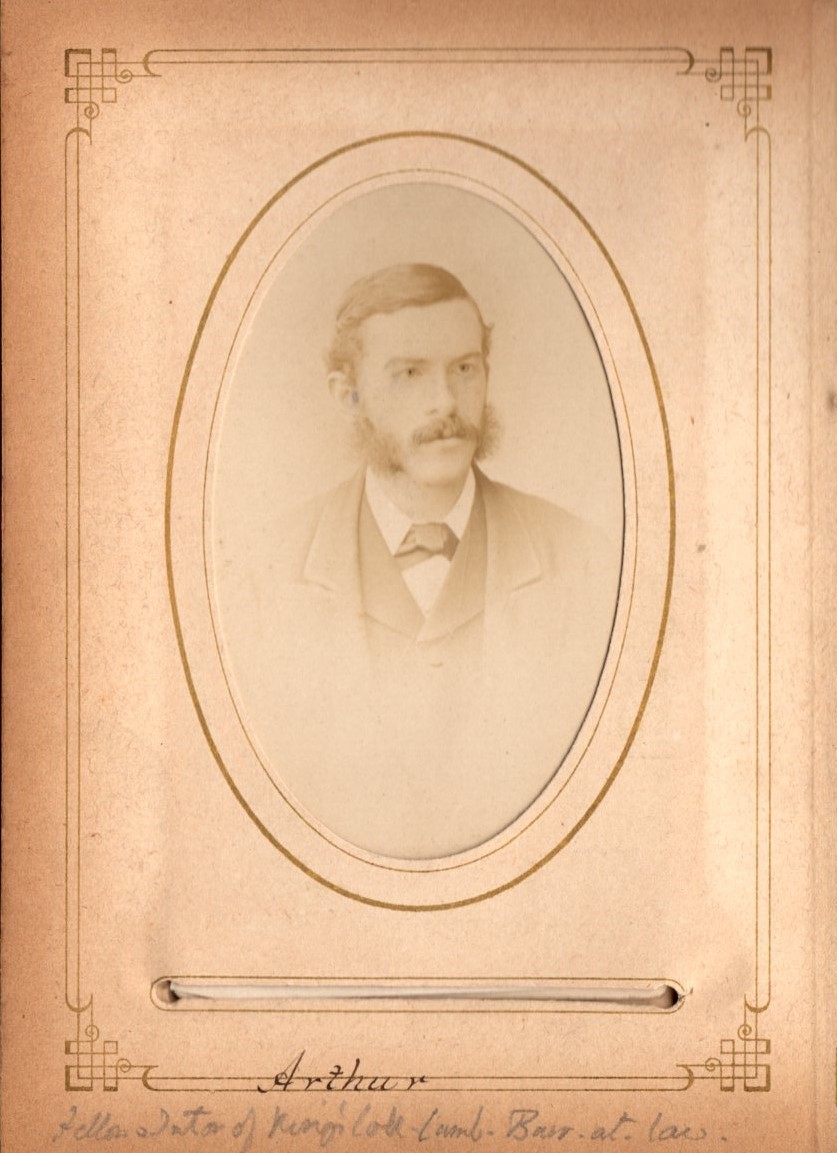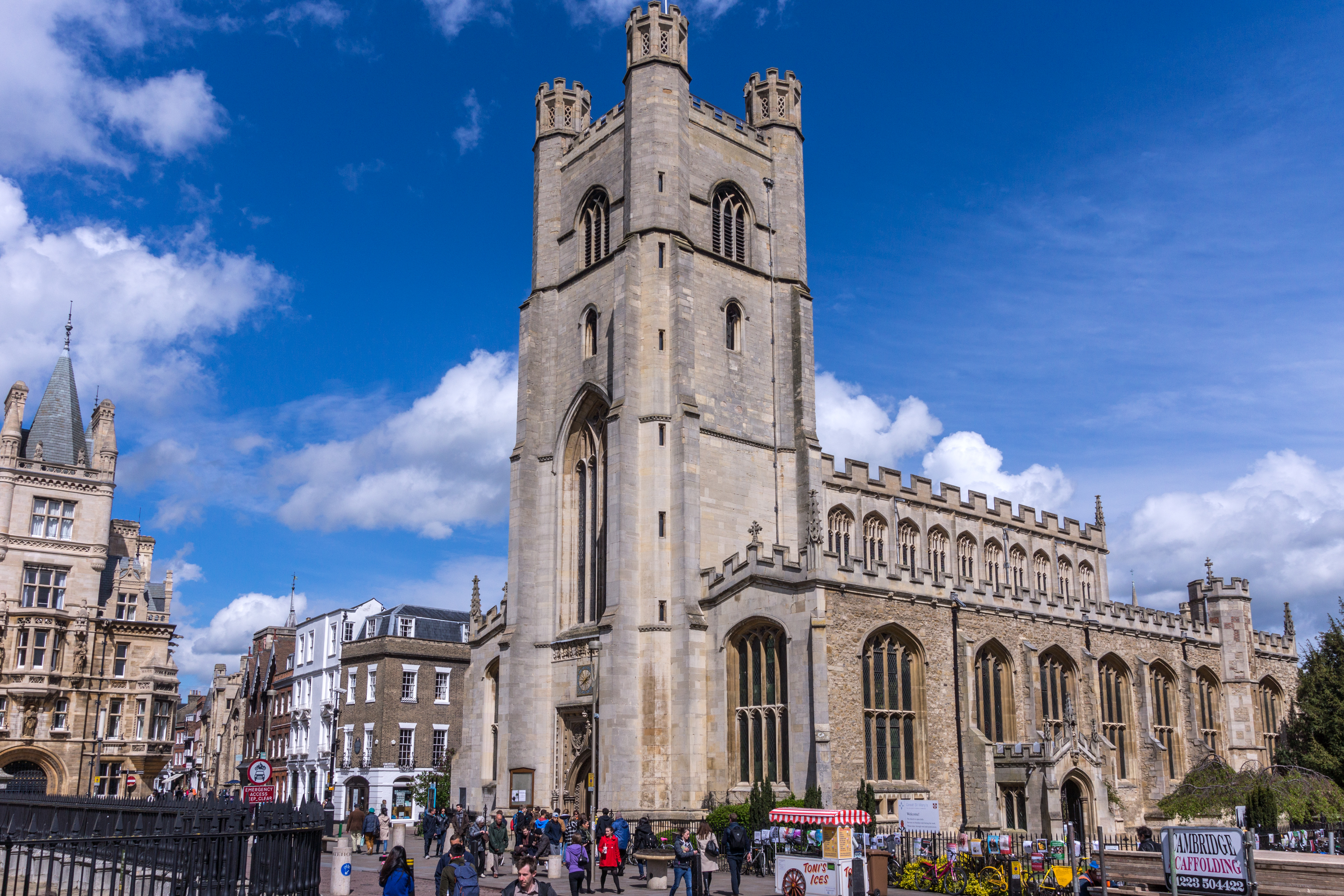|
Hugh Fraser Stewart
Hugh Fraser Stewart (1863–1948) was a British academic, churchman and literary critic. Life He was the second son of Ludovic(k) Charles Stewart, an army surgeon and son of Ludovick Stewart of Pityvaich, and Emma Ray or Rae. He was educated at Trinity College, Cambridge from 1883, where he graduated B.A. in 1886. He then taught as an assistant master at Marlborough College, from 1889 to 1895, and as housemaster of C1 from 1893. He was ordained in 1894, and was vice-principal of Salisbury Theological College, from 1895 to 1899. He became chaplain of Trinity College in 1900, for a year. Stewart was elected a Fellow and became Dean of St John's College, Cambridge, in 1907. A meeting at H. M. Chadwick's house in 1916, with Stewart and Arthur Quiller-Couch, was significant in the launching of the Cambridge English Tripos. Stewart moved to Trinity College in 1918, where he became Praelector in French. In 1919 Stewart became a Fellow of Eton College, and in 1922 Reader in French. Clos ... [...More Info...] [...Related Items...] OR: [Wikipedia] [Google] [Baidu] |
Trinity College, Cambridge
Trinity College is a constituent college of the University of Cambridge. Founded in 1546 by Henry VIII, King Henry VIII, Trinity is one of the largest Cambridge colleges, with the largest financial endowment of any college at either Cambridge or University of Oxford, Oxford. Trinity has some of the most distinctive architecture in Cambridge with its Trinity Great Court, Great Court said to be the largest enclosed courtyard in Europe. Academically, Trinity performs exceptionally as measured by the Tompkins Table (the annual unofficial league table of Cambridge colleges), coming top from 2011 to 2017. Trinity was the top-performing college for the 2020-21 undergraduate exams, obtaining the highest percentage of good honours. Members of Trinity have been awarded 34 Nobel Prizes out of the 121 received by members of Cambridge University (the highest of any college at either Oxford or Cambridge). Members of the college have received four Fields Medals, one Turing Award and one Abel ... [...More Info...] [...Related Items...] OR: [Wikipedia] [Google] [Baidu] |
Charles I Of England
Charles I (19 November 1600 – 30 January 1649) was King of England, Scotland, and Ireland from 27 March 1625 until Execution of Charles I, his execution in 1649. He was born into the House of Stuart as the second son of King James VI of Scotland, but after his father inherited the English throne in 1603, he moved to England, where he spent much of the rest of his life. He became heir apparent to the kingdoms of England, Scotland, and Ireland in 1612 upon the death of his elder brother, Henry Frederick, Prince of Wales. An unsuccessful and unpopular attempt to marry him to the Spanish Habsburg princess Maria Anna of Spain, Maria Anna culminated in an eight-month visit to Spain in 1623 that demonstrated the futility of the marriage negotiation. Two years later, he married the House of Bourbon, Bourbon princess Henrietta Maria of France. After his 1625 succession, Charles quarrelled with the Parliament of England, English Parliament, which sought to curb his royal prerogati ... [...More Info...] [...Related Items...] OR: [Wikipedia] [Google] [Baidu] |
Fellows Of St John's College, Cambridge
{{disambiguation ...
Fellows may refer to Fellow, in plural form. Fellows or Fellowes may also refer to: Places *Fellows, California, USA *Fellows, Wisconsin, ghost town, USA Other uses *Fellows Auctioneers, established in 1876. *Fellowes, Inc., manufacturer of workspace products *Fellows, a partner in the firm of English canal carriers, Fellows Morton & Clayton *Fellows (surname) See also *North Fellows Historic District, listed on the National Register of Historic Places in Wapello County, Iowa *Justice Fellows (other) Justice Fellows may refer to: * Grant Fellows (1865–1929), associate justice of the Michigan Supreme Court * Raymond Fellows (1885–1957), associate justice of the Maine Supreme Judicial Court {{disambiguation, tndis ... [...More Info...] [...Related Items...] OR: [Wikipedia] [Google] [Baidu] |
Fellows Of Eton College
{{disambiguation ...
Fellows may refer to Fellow, in plural form. Fellows or Fellowes may also refer to: Places *Fellows, California, USA *Fellows, Wisconsin, ghost town, USA Other uses *Fellows Auctioneers, established in 1876. *Fellowes, Inc., manufacturer of workspace products *Fellows, a partner in the firm of English canal carriers, Fellows Morton & Clayton *Fellows (surname) See also *North Fellows Historic District, listed on the National Register of Historic Places in Wapello County, Iowa *Justice Fellows (other) Justice Fellows may refer to: * Grant Fellows (1865–1929), associate justice of the Michigan Supreme Court * Raymond Fellows (1885–1957), associate justice of the Maine Supreme Judicial Court {{disambiguation, tndis ... [...More Info...] [...Related Items...] OR: [Wikipedia] [Google] [Baidu] |
1948 Deaths
Events January * January 1 ** The General Agreement on Tariffs and Trade (GATT) is inaugurated. ** The Constitution of New Jersey (later subject to amendment) goes into effect. ** The railways of Britain are nationalized, to form British Railways. * January 4 – Burma gains its independence from the United Kingdom, becoming an independent republic, named the ''Union of Burma'', with Sao Shwe Thaik as its first President, and U Nu its first Prime Minister. * January 5 ** Warner Brothers shows the first color newsreel (''Tournament of Roses Parade'' and the '' Rose Bowl Game''). ** The first Kinsey Report, ''Sexual Behavior in the Human Male'', is published in the United States. * January 7 – Mantell UFO incident: Kentucky Air National Guard pilot Thomas Mantell crashes while in pursuit of an unidentified flying object. * January 12 – Mahatma Gandhi begins his fast-unto-death in Delhi, to stop communal violence during the Partition of India. * January 1 ... [...More Info...] [...Related Items...] OR: [Wikipedia] [Google] [Baidu] |
1863 Births
Events January–March * January 1 – Abraham Lincoln signs the Emancipation Proclamation during the third year of the American Civil War, making the abolition of slavery in the Confederate states an official war goal. It proclaims the freedom of 3.1 million of the nation's four million slaves and immediately frees 50,000 of them, with the rest freed as Union armies advance. * January 2 – Lucius Tar Painting Master Company (''Teerfarbenfabrik Meirter Lucius''), predecessor of Hoechst, as a worldwide chemical manufacturing brand, founded in a suburb of Frankfurt am Main, Germany. * January 4 – The New Apostolic Church, a Christian and chiliastic church, is established in Hamburg, Germany. * January 7 – In the Swiss canton of Ticino, the village of Bedretto is partly destroyed and 29 killed, by an avalanche. * January 8 ** The Yorkshire County Cricket Club is founded at the Adelphi Hotel, in Sheffield, England. ** American Civil War – ... [...More Info...] [...Related Items...] OR: [Wikipedia] [Google] [Baidu] |
Frida Knight
Frida Knight (1910–1996) was an English communist activist and author. Life Born Frideswide Frances Emma Stewart, and known as Frida, she was the daughter of Hugh Fraser Stewart (1863–1948) and his wife Jessie Graham Crum; her sister Caitin (Katherine) married George Derwent Thomson, and her brother Ludovic married Alice Mary Naish. She left school at 14 with a heart condition, and spent time in Italy. A student of music and drama, Stewart went with one of her sisters to Germany in 1928, studying the violin, and then went to the Royal College of Music. She spent time at the Manchester University Settlement and Hull University College. In 1935 she visited the Soviet Union on a British Drama League trip. Stewart then joined the Left Book Club and Communist Party of Great Britain, and formed local Spanish Aid committees on the outbreak of the Spanish Civil War. She drove an ambulance to Spain on behalf of the National Joint Committee for Spanish Relief. In 1937 she was at a h ... [...More Info...] [...Related Items...] OR: [Wikipedia] [Google] [Baidu] |
Arthur Augustus Tilley
Arthur Augustus Tilley (1 December 1851 – 4 December 1942) was an academic of the University of Cambridge. An Old Etonian, his first subject at Cambridge was Classics, after which he began a career as a barrister. He returned to his old college to teach Classics, going on to specialise in French literature and becoming both a literary critic and a historian. Tilley is remembered at Cambridge for resisting the modernisation of behaviour and dress which he observed, describing the new elements in his college as 'bounders'. Early life Tilley was the only child of Sir John Tilley, Secretary to the General Post Office,TILLEY, Arthur Augustus', in ''Who Was Who'' (A. & C. Black, 1920–2008); online edition by Oxford University Press, December 2007 (subscription required), accessed 21 December 2010 by his marriage to Mary Ann Partington, who was his second wife. Tilley's father had been married firstly, in 1839, to Cecilia Trollope, a favourite sister of the novelist Anthony ... [...More Info...] [...Related Items...] OR: [Wikipedia] [Google] [Baidu] |
Hulsean Lectures
The Hulsean Lectures were established from an endowment made by John Hulse to the University of Cambridge in 1790. At present, they consist of a series of four to eight lectures given by a university graduate on some branch of Christian theology. History The lectures were originally to be given by a "learned and ingenious clergyman" from Cambridge, holding the degree of Master of Arts, who was under the age of forty years. The terms for the lectures were quite extensive and particular. The lecturer was As a result of these rather demanding terms and conditions, for some thirty years (1790–1819) no person could be found who would undertake the office of this lectureship. The first to accept was Christopher Benson, who held the post until 1822, at which time he quit, having found the terms and conditions imposed by the lectureship too fatiguing and laborious. For the rest of the decade, only two more lecturers were found, and both in their turn resigned for the same reasons. ... [...More Info...] [...Related Items...] OR: [Wikipedia] [Google] [Baidu] |
John Eyton Bickersteth Mayor
John Eyton Bickersteth Mayor (28 January 1825 – 1 December 1910) was an English classical scholar, writer and vegetarianism activist. Life Mayor was born at Baddegama, British Ceylon (now Sri Lanka) the son of Rev. John Major and Charlotte Bickersteth. His mother came from the prominent Bickersteth family and was the sister of Henry Bickersteth, 1st Baron Langdale and Rev. Edward Bickersteth. He was sent to England to be educated at Shrewsbury School and St John's College, Cambridge. Joseph Bickersteth Mayor was his younger brother. From 1863 to 1867, Mayor was librarian of the University of Cambridge, and in 1872 succeeded H. A. J. Munro in the professorship of Latin, which he held for 28 years. His best-known work, an edition of the thirteen Satires of Juvenal, is notable for an extraordinary wealth of illustrative quotations. His ''Bibliographical Clue to Latin Literature'' (1875), based on Emil Hübner's ''Grundriss zu Vorlesungen über die römische Litteraturgesc ... [...More Info...] [...Related Items...] OR: [Wikipedia] [Google] [Baidu] |
Blaise Pascal
Blaise Pascal ( , , ; ; 19 June 1623 – 19 August 1662) was a French mathematician, physicist, inventor, philosopher, and Catholic Church, Catholic writer. He was a child prodigy who was educated by his father, a tax collector in Rouen. Pascal's earliest mathematical work was on conic sections; he wrote a significant treatise on the subject of projective geometry at the age of 16. He later corresponded with Pierre de Fermat on probability theory, strongly influencing the development of modern economics and social sciences, social science. In 1642, while still a teenager, he started some pioneering work on calculating machines (called Pascal's calculators and later Pascalines), establishing him as one of the first two inventors of the mechanical calculator. Like his contemporary René Descartes, Pascal was also a pioneer in the natural and applied sciences. Pascal wrote in defense of the scientific method and produced several controversial results. He made important contribu ... [...More Info...] [...Related Items...] OR: [Wikipedia] [Google] [Baidu] |







.png)